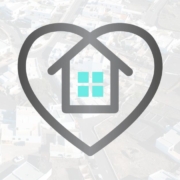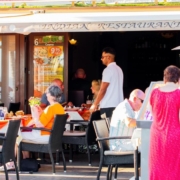Visitors and new arrivals to Lanzarote have often wondered how safe it is to drink the tap water on the island. Last month, a group of experts provided the answer.
On Lanzarote, many residents prefer to drink mineral water, sold in all supermarkets in large plastic bottles. Many claim that this tastes better than the desalinated tap water, and the frequent water cuts in rural areas of the island have also contributed to the trend.
However, a round table event last month, organised by the Biosphere Reserve, gathered several experts to assure the public that tap water is perfectly safe, and to promote a “More Tap Water, Less Plastic” campaign.
Professor Rayco Guedes, head of Chemistry at the University of Las Palmas de Gran Canaria stated that the reverse osmosis desalination process used on Lanzarote meant that tap water contained less plastic residue than bottled water, while the head of Canal Gestión’s laboratory, Sara Martín, described how the desalinated water is remineralised with calcium and magnesium, along with the addition of chlorine disinfectant within legal limits, as is normal in all European countries.
Lanzarote’s Public Health Inspector, Marta Betancort, described how regular sampling and testing took place at locations throughout the island’s mains system, ensuring that the water is safe to drink.
Javier de Quintana of the Plumbers’ Federation pointed out that occasional cases of discoloured water usually stemmed from aljibes and water tanks, and urged individuals and communities to maintain these in optimum condition.
The event concluded that tap water is cheaper, healthier, cleaner, and more environmentallyfriendly than bottled water.
WATER TIPS
• Ensure that aljibes (water tanks) and other deposits are regularly checked and cleaned by qualified professionals.
• If you have water filters, make sure they are also cleaned regularly.
• Levels of chlorine are safe, but if you’re still worried leave water to stand for a few hours so it evaporates.
• Keep a few bottles for emergencies, especially if you live in rural areas, but change the water every month or so.











Leave a Reply
Want to join the discussion?Feel free to contribute!